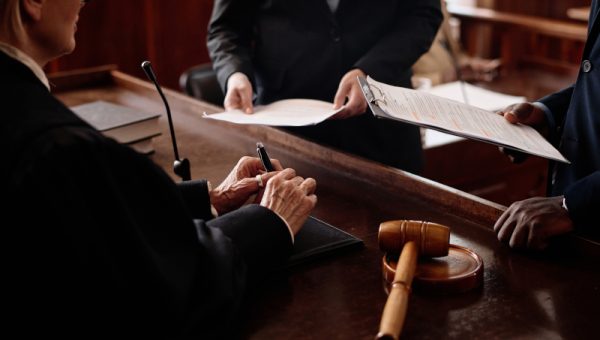Understanding the bail process in Queensland is crucial for anyone navigating the criminal justice system. Bail serves as a legal mechanism that allows an accused person to be released from custody while awaiting their court proceedings, provided they adhere to certain conditions. This guide aims to demystify the bail process, offering clear and comprehensive information to help individuals understand their rights, obligations, and the steps involved.
In the Queensland criminal justice system, bail plays a pivotal role in balancing the presumption of innocence with the need to ensure community safety and the proper conduct of legal proceedings. When an individual is charged with an offence, they may not need to remain in custody until their trial. Instead, they can be granted bail, which permits their release under specified conditions designed to mitigate any risks associated with their temporary freedom. This guide will walk you through every aspect of the bail process, ensuring you are well-informed and prepared, whether you are facing charges yourself or supporting someone who is.
Understanding Bail: The Basics
What is Bail?
Bail is a legal provision that permits an accused person to be released from custody while awaiting their matter to progress, provided they agree to abide by certain conditions set by the court. The primary purpose of bail is to balance the individual’s right to freedom with the need to ensure they return to court for their hearings and do not pose a threat to the community. In Queensland, bail is governed by the Bail Act 1980, which outlines the legal framework and procedures for granting bail.
Types of Bail in Queensland
In Queensland, there are two main types of bail: police bail and court bail.
- Police Bail: This type of bail can be granted by a police officer after an individual is charged with an offence but before they appear in court. Police bail allows the accused to remain free until their first court appearance. The conditions of police bail can include reporting to a police station, residing at a specific address, or refraining from contacting certain individuals.
- Court Bail: If police bail is not granted, the accused will be held in custody until they can apply for bail in court. Court bail is decided by a magistrate or judge during a bail hearing. The court will consider various factors, such as the seriousness of the offence, the accused’s criminal history, and the risk of them failing to appear in court.
Common Conditions of Bail
When bail is granted, the accused must comply with certain conditions to remain out of custody. These conditions are designed to ensure the accused appears in court and does not engage in any unlawful activity while on bail. Common bail conditions in Queensland include:
- Reporting Conditions: The accused may be required to report to a police station regularly.
- Residential Conditions: The accused must reside at a specific address and notify authorities of any change in address.
- Non-Contact Orders: The accused is prohibited from contacting specific individuals, such as witnesses or the complainant.
- Curfew: A curfew may be imposed, restricting the accused’s movements during certain hours.
- Surrender of Passport: The accused may be required to surrender their passport to prevent them from leaving the country.
- Financial Surety: The accused or a surety may be required to pay a sum of money as a guarantee of compliance with bail conditions.
Understanding these basics of bail in Queensland is essential for navigating the legal system effectively and ensuring that all obligations are met to avoid further legal complications.
Eligibility for Bail
Who Can Apply for Bail?
In Queensland, anyone charged with an offence has the right to apply for bail. This includes individuals facing minor offences as well as those charged with serious crimes. However, the likelihood of being granted bail can vary significantly based on the nature and severity of the offence, as well as the applicant’s personal circumstances. Specific criteria that may affect eligibility for bail include:
- Nature of the Offence: Individuals charged with less serious offences, such as minor theft or minor drug possessions, are generally more likely to be granted bail compared to those accused of serious crimes like murder or armed robbery.
- Previous Criminal History: Offenders with a clean to limited criminal are more likely to be granted bail than those with a history of repeated offences.
- Compliance with Previous Bail Conditions: A history of complying with past bail conditions can positively influence eligibility for bail in new cases.
- Risk of Flight: Individuals who are deemed unlikely to flee the jurisdiction or strong ties to the community have a greater chance of being granted bail.
Factors Influencing Bail Decisions
When deciding whether to grant bail, courts consider a range of factors to determine the risks associated with releasing the accused. Key factors include:
- Severity of the Offence: Serious offences may carry a higher risk, leading to stricter bail conditions or denial of bail.
- Risk of Reoffending: The court assesses whether the accused is likely to commit further offences if released on bail.
- Flight Risk: The likelihood of the accused absconding and failing to appear for court dates.
- Protection of the Community: Ensuring the safety of the public, especially in cases involving violence or threats.
- Strength of the Prosecution Case: The evidence against the accused and the likelihood of a conviction may influence the decision.
- Personal Circumstances: Factors such as employment, family ties, and community connections can impact the court’s decision.
Reasons Bail May Be Denied
Bail may be denied if the court determines that releasing the accused poses too great a risk. Common reasons for denial of bail include:
- Risk of Flight: If there is a significant chance the accused will flee and not return for court proceedings.
- Likelihood of Reoffending: If the accused is likely to commit further offences while on bail.
- Threat to the Public: If releasing the accused would endanger the community, particularly in cases involving violence or threats.
- Interference with Witnesses: If there is a risk that the accused will tamper with evidence or intimidate witnesses.
- Previous Breaches of Bail: A history of not complying with bail conditions can lead to denial of bail in new cases.
- Severe Charges: Individuals charged with particularly serious offences, such as murder or sexual assaults, may be denied bail due to the gravity of their charges.
Understanding the eligibility criteria and factors influencing bail decisions is essential for anyone involved in the bail process, helping to set realistic expectations and prepare a strong bail application.
The Bail Application Process
How to Apply for Bail
Applying for bail in Queensland involves several key steps. Here’s a step-by-step guide to help navigate the process:
- Initial Application: If police bail is not granted, the accused will need to apply for bail through the court. This usually happens at the first court appearance after the individual is charged.
- Gathering Supporting Evidence: The accused has the right to gather evidence to support their application for bail. This might include evidence contradicting the Prosecution case, confirmation of employment, and proof of community ties.
- Submission to Court: On the day of the hearing, the accused or their lawyer will make the application for bail before a Magistrate.
The Role of Lawyers
Legal representation is crucial in the bail application process. A lawyer plasy a significant role in ensuring that the application is thorough and persuasive:
- Legal Advice: Bail lawyers provide expert advice on the likelihood of obtaining bail and the best strategy for the application.
- Preparation of Application: They help prepare the application, ensuring all necessary documents and evidence are included.
- Representation in Court: During the bail hearing, lawyers present the case on behalf of the accused, arguing for their release based on the evidence and legal precedents.
- Negotiation: Bail lawyers can negotiate the conditions of bail with the prosecution, aiming to secure the most favourable terms for their client.
Special Considerations
Bail for Juveniles
In Queensland, the bail process for juveniles differs from that of adults, taking into account the age and developmental stage of young offenders. Key differences include:
- Jurisdiction: Juvenile bail applications are handled by the Children’s Court, which specialises in matters involving young offenders.
- Presumption in Favour of Bail: There is a stronger presumption in favour of granting bail to juveniles, emphasising rehabilitation and the importance of keeping young people out of detention where possible.
- Special Conditions: Bail conditions for juveniles may include attending programs through Youth Justice, obeying curfews and participating in community or youth programs. These conditions are designed to support the juvenile’s development and prevent reoffending.
- Parental Involvement: Parents or guardians often play a crucial role in the bail process, providing surety or supervising the juvenile to ensure compliance with bail conditions.
- Support Services: Juveniles on bail may be referred to support services, including counselling, educational programs, and youth justice services, aimed at addressing underlying issues contributing to their offending behaviour.
Impact of Previous Convictions
Previous convictions can significantly influence a current bail application. The court considers an individual’s criminal history to assess the risk they pose if released on bail. Key considerations include:
- Pattern of Behaviour: A history of similar offences can indicate a pattern of behaviour, increasing the likelihood of reoffending.
- Compliance with Past Bail Conditions: The court reviews the accused’s compliance with previous bail conditions. A record of breaches or failures to appear in court negatively impacts the current application.
- Seriousness of Previous Offences: Past convictions for serious or violent crimes can lead to stricter bail conditions or denial of bail, as these indicate a higher risk to community safety.
- Time Since Last Offence: The length of time since the last offence is also considered. A longer period without reoffending may positively influence the bail decision, suggesting rehabilitation and reduced risk.
After Bail is Granted
Compliance with Bail Conditions
Adhering to the conditions set out in bail is crucial for anyone granted bail. Compliance ensures the individual can remain out of custody while awaiting their matter to proggress and demonstrates respect for the judicial process. Key points about compliance include:
- Mandatory Adherence: All conditions imposed by the court must be strictly followed. These may include reporting to a police station, living at a specified address, maintaining a curfew, avoiding contact with certain individuals, or surrendering travel documents.
- Regular Reporting: If required to report to a police station, individuals must do so on the specified dates and times. Failure to report as required can be considered a breach of bail.
- Communication: It is important to maintain open communication with legal representatives and authorities. Informing them of any changes in circumstances, such as a new address or employment status, is essential.
- Documentation: Keep copies of all bail documents and a record of compliance activities, such as dates and times of reporting to the police. This can be useful in demonstrating adherence to conditions.
- Support Networks: Utilise support networks, including family, friends, and community services, to help manage compliance with bail conditions and ensure accountability.
Consequences of Breaching Bail
Breaching bail conditions carries significant legal implications that can affect an individual’s case and future interactions with the judicial system. The consequences of non-compliance include:
- Revocation of Bail: The most immediate consequence of breaching bail conditions is the potential revocation of bail. This means the individual may be taken back into custody until their trial.
- Additional Charges: Failing to comply with bail conditions can result in additional criminal charges, further complicating the individual’s legal situation.
- Increased Bail Conditions: If bail is re-granted after a breach, the conditions may become more stringent. This can include stricter reporting requirements, or electronic monitoring.
- Impact on Court Proceedings: Non-compliance can negatively affect the court’s perception of the individual, potentially influencing the outcome of the a potential sentence.
- Loss of Surety: If a surety was provided, the person who offered it may lose the money or property pledged as a guarantee.
- Long-term Implications: A breach of bail can have long-term consequences on the individual’s record, affecting future bail applications and other legal matters.
Adhering to bail conditions is critical to maintaining one’s freedom and demonstrating a commitment to the judicial process. Understanding the severe consequences of breaching bail underscores the importance of strict compliance and cooperation with legal requirements.
Bail Variation and Appeals
Requesting Changes to Bail Conditions
Circumstances may arise that necessitate changes to bail conditions. The process for seeking a modification involves several steps:
- Identify the Need for Variation: Determine the specific conditions that require modification and the reasons for the change. This could include changes in employment, residence, or other personal circumstances.
- Legal Advice: Consult with a lawyer to understand the likelihood of a successful application for bail variation and to receive guidance on the required documentation and arguments.
- Prepare an Application: An application for bail variation must be prepared and filed with the court. This application should include the reasons for the requested changes and any supporting evidence, such as letters from employers or medical professionals.
- File the Application: Submit the application to the court. The court will then schedule a hearing to consider the request.
- Attend the Hearing: During the hearing, present the case for the requested changes. The court will consider the evidence and arguments before making a decision. It’s essential to demonstrate that the variation will not increase the risk of flight, reoffending, or other concerns.
- Court Decision: The court may grant or deny the application based on the evidence and arguments presented. If granted, the new conditions will be set and must be adhered to.
Key Takeaways
Navigating the bail process in Queensland can be complex, but understanding its various aspects is crucial for ensuring a smooth and fair experience. Here are the key points covered:
- Understanding Bail: Bail allows an accused person to remain free while awaiting their matter proceeding through the court, under certain conditions set. It balances the individual’s right to freedom with community safety and the integrity of the legal process.
- Types of Bail: Queensland recognises police bail and court bail, each with distinct procedures and conditions. Police bail is granted by officers, while court bail is determined by a magistrate or judge.
- Eligibility for Bail: Eligibility depends on the nature of the offence, the accused’s criminal history, and their risk of flight or reoffending. The court considers various factors, including the severity of the offence and the accused’s personal circumstances.
- Bail Application Process: Applying for bail involves filing an application, often with legal assistance, and attending a bail hearing where the court reviews the case and sets conditions for release.
- After Bail is Granted: Compliance with bail conditions is essential to avoid revocation and additional legal consequences. Non-compliance can lead to arrest, additional charges, and stricter bail conditions.
- Bail Variation: Individuals can request changes to bail conditions through a formal legal process. This involves filing the necessary documents and presenting the case in court.
- Support and Resources: Legal support services and community programs are available to assist individuals with bail applications, compliance, and personal challenges. These resources provide crucial support to navigate the bail process effectively.
By understanding these key points, individuals can better prepare for and manage the bail process, ensuring compliance with legal requirements and reducing the risk of complications. Access to legal support and community resources further aids in navigating this challenging aspect of the criminal justice system in Queensland.
FAQs
1. What is the purpose of bail in Queensland?
Bail allows an accused person to remain out of custody while awaiting court proceedings, under the condition that they comply with specific requirements set by the court. The purpose is to balance the individual’s right to freedom with ensuring they attend court and do not pose a threat to the community.
2. What factors influence whether bail is granted or denied?
The court considers several factors when deciding on bail, including the seriousness of the offence, the accused’s criminal history, the risk of reoffending, the likelihood of the accused fleeing, and the need to protect the community.
3. What are common conditions that might be imposed with bail?
Common bail conditions in Queensland include regular reporting to a police station, residing at a specific address, surrendering a passport, non-contact orders, curfews, and sometimes providing a financial surety as a guarantee.
4. Can juveniles apply for bail in Queensland?
Yes, juveniles can apply for bail in Queensland. The process is handled by the Children’s Court, which often has a stronger presumption in favor of granting bail, focusing on rehabilitation and preventing young offenders from being detained.
5. What happens if someone breaches their bail conditions?
Breaching bail conditions can lead to serious consequences, including the revocation of bail, being taken back into custody, facing additional charges, and possibly stricter bail conditions if bail is re-granted.
6. How can I apply for a variation to my bail conditions?
To request changes to bail conditions, you must file an application with the court outlining the reasons for the change, supported by relevant evidence. A hearing will then be scheduled where the court will decide on the application.
7. What should I do if I am denied bail?
If bail is denied, you may remain in custody until your trial. However, you can appeal the decision or reapply for bail if there is a change in circumstances or if new evidence supporting your release is available.
8. Can I leave Queensland while on bail?
Leaving Queensland while on bail is generally prohibited, especially if it involves international travel. You may be required to surrender your passport as part of your bail conditions, and leaving the jurisdiction without permission can result in breaching your bail.
9. Who can provide surety for bail?
A surety is typically provided by a family member or close friend who agrees to pay a sum of money if the accused breaches bail conditions. The surety must be financially capable and willing to take on this responsibility.
10. What role does a lawyer play in the bail process?
A lawyer can provide critical support during the bail process, including advising on the likelihood of being granted bail, preparing and filing the bail application, representing the accused in court, and negotiating the conditions of bail.







